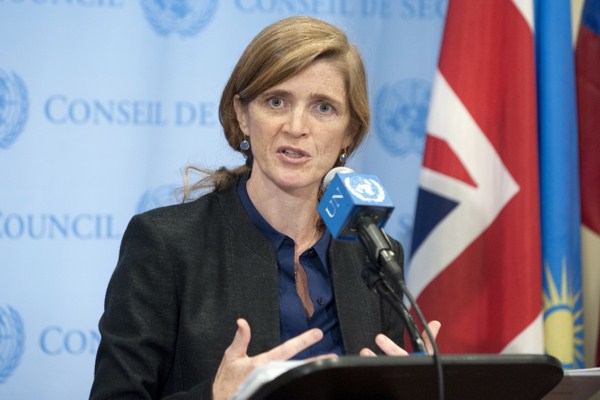The United States sent its European allies some stern signals about their obligations to the American-led international order last week. On Monday, U.S. Ambassador to the U.N. Samantha Power visited Brussels, where she warned NATO members to halt their “dangerous” defense cuts and called on European powers to offer more troops to United Nations peace operations.
Power argued that European armies, which currently provide less than 10 percent of all U.N. peacekeepers worldwide, could have a “momentum-shifting” impact on beleaguered blue helmet missions in trouble spots such as South Sudan. Instead, she underlined, “European countries have drawn back from peacekeeping,” while the European Union has shied away from high-intensity missions. This was an accurate but uncomfortable message for EU and NATO members, whose appetite for stabilization missions remains very low after their Afghan nightmares.
Power emphasized threats from the Middle East and North Africa to bolster her argument. Later in the week, anonymous U.S. officials sent a reminder that they expect European assistance in Asia, too. This time, the sore point was economic cooperation rather than military affairs. Washington has taken umbrage at Britain’s decision to invest in the Asian Infrastructure Investment Bank (AIIB), a new organization proposed by China to offset the U.S.-backed Asian Development Bank.

